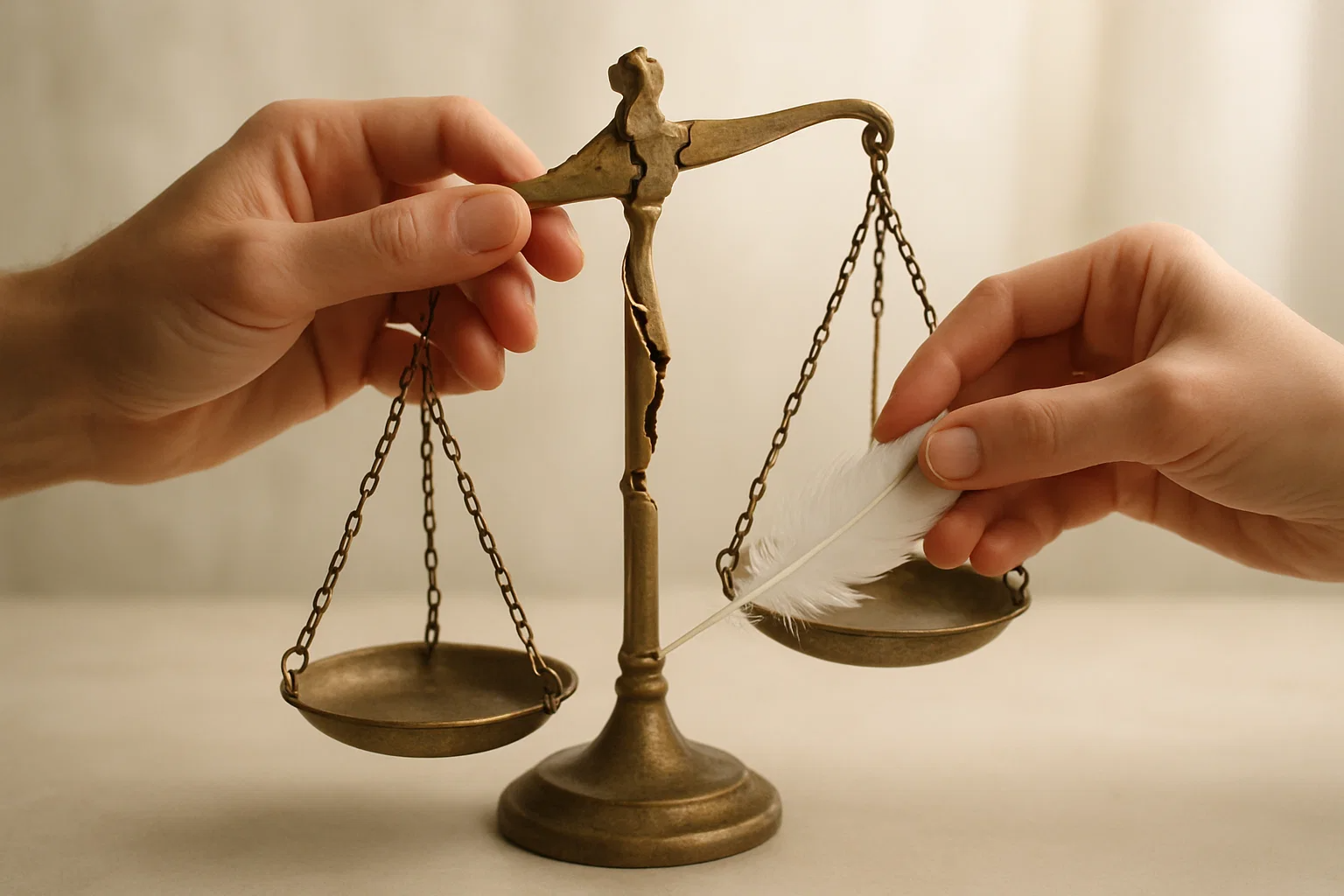Justice Without Vengeance
Restoring What’s Right Without Losing What’s Good
 Justice is a noble pursuit—but in the wrong hands, it can become a weapon. In a world where outrage often drowns out reason, and punishment is mistaken for progress, we at EAPCS believe it’s time to reclaim a crucial truth: Justice must never become vengeance.
Justice is a noble pursuit—but in the wrong hands, it can become a weapon. In a world where outrage often drowns out reason, and punishment is mistaken for progress, we at EAPCS believe it’s time to reclaim a crucial truth: Justice must never become vengeance.
Vengeance is reactive. It’s fueled by pain, pride, or the need to feel powerful. Justice, on the other hand, is rooted in principle. It seeks restoration, accountability, and balance—not destruction.
To live by Ethical and Practical Common Sense, we must learn how to pursue justice that heals instead of harms, that corrects without corrupting, and that stands for truth without being consumed by rage.
Justice Is Not a Personal Grudge
Vengeance wears the mask of justice. It says, “They hurt me, so I’ll hurt them back.”
But true justice says, “What they did was wrong—so let’s make it right, for everyone’s sake.”
Justice isn’t about settling the score. It’s about creating conditions where fairness can thrive, where wrongdoers are held accountable, and where victims are restored—not just revenged on behalf of.
The danger of vengeance is that it focuses on the person, not the principle. It creates cycles of retaliation, often escalating into deeper harm on both sides. Justice demands something higher: accountability without hatred.
The Power of Restraint
Vengeance is fast, loud, and emotionally satisfying—for a moment. But it usually leaves behind collateral damage: broken relationships, toxic environments, and long-term bitterness.
Justice, in contrast, requires patience and restraint. It demands that we act not just from what we feel, but from what is fair and true. That kind of clarity is difficult, but essential—especially when emotions run high.
In real life, this looks like:
- Pursuing due process, even when it's slow.
- Speaking truth about harm, without trying to destroy the person who caused it.
- Seeking restitution or reform, rather than revenge.
This doesn’t mean letting people off the hook. It means holding them to account without becoming what they did.
Justice That Heals
At EAPCS, we teach that justice should always seek redemption where possible, and responsibility where necessary. The best justice isn’t just about punishment—it’s about creating a better outcome for everyone involved.
This includes:
- Standing up for those who’ve been harmed.
- Creating systems that prevent future abuse or corruption.
- Offering a path for people to change—without lowering the standard of what’s right.
This kind of justice takes more work. It doesn’t feel as satisfying in the moment. But it’s the only kind of justice that builds, rather than burns.
The Practical Side of Ethical Justice
Justice without vengeance is sustainable. It doesn't rely on emotional fuel—it relies on ethical consistency. It leaves room for truth, mercy, and consequences to coexist. It holds the line without crossing it.
That means:
- We teach kids to make things right, not just fear punishment.
- We confront wrongdoing in our communities without turning into mobs.
- We ask ourselves hard questions: “Am I pursuing justice—or feeding my ego?”
When we lead with principle instead of pain, we model what it looks like to build trust and credibility—especially in times of conflict.
Living It Out
Justice is necessary. Vengeance is not. One builds, the other breaks. One restores order, the other fuels chaos.
If we truly want a society that values truth, fairness, and stability, then we need justice that rises above revenge—and people who are willing to live that out, day by day.
That’s the kind of justice EAPCS is here to promote. It’s not easy, and it’s not always popular. But it’s what actually works—and what the world desperately needs.